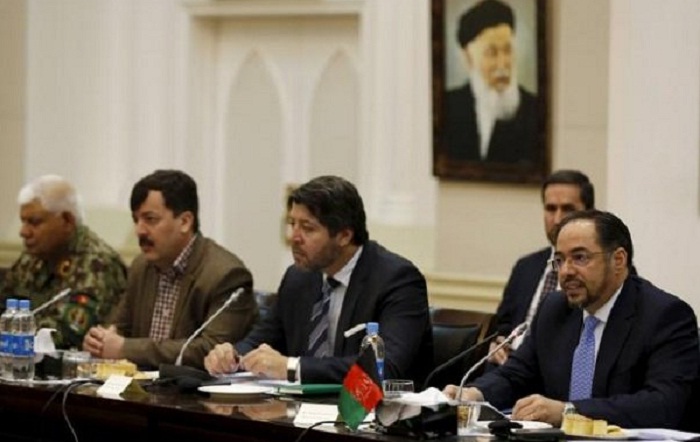NEW DELHI: Afghanistan is passing through the most difficult phase ever since Taliban were overthrown following Pak-backed terror outfit making resurgence over the past one year and future of the landlocked country appears uncertain amid a fragmented polity there, cautioned four ex-Indian envoys to Kabul.
As the four-nation talks involving US, China, Pakistan and Afghanistan opened in Kabul on Tuesday the Indian diplomats with wide-ranging experience in dealing with Af-Pak region was circumspect about the future of the country where Pakistan has made attempts to scuttle Indian influence.
While Vivek Katju, Indian envoy in Kabul during the initial years of post-Taliban insurgency described Pakistan as the key driving force in Afghanistan controlling the Taliban insurgency his colleague and yet another envoy to Kabul Rakesh Sood pointed out that 2015 was the most punishing year for Afghans. Even as the quadrilateral dialogue has been launched dialogue there has been no dialogue with the terror group itself, noted Sood at an interactive session organized here public policy body Ananta Aspen Centre on Afghanistan’s future.
Both Katju and Sood agreed that it will be difficult to predict future of Afghanistan. In fact Sood, who also served in Nepal and France, noted that situation in Afghanistan will be fluid for the next three years.
Director of Institute of Defence Studies and Analyses and a former envoy to the landlocked country Jayant Prasad while appearing to agree on “foreign invasion” of Afghanistan however suggested that China, Pakistan’s all-weather friend can play a critical role in stabilizing the country in its own interests.
Agreeing with the notion of “foreign invasion” (read Pakistan inroads) in Afghanistan, Amar Sinha, who recently completed his tenure in Kabul and now posted as Secretary (Economic Relations) MEA highlighted the transition across spectrum in Afghanistan during the past two years and rued the fact that Afghan Army is primary a counter-insurgency Army.
He said that India was not being “sidelined” by Kabul just because it is not a party to the peace talks with Taliban.
Amar Sinha said that to send out the message that its involvement in Afghanistan was not against any country, India may also collaborate with regional partners in future projects in the war-torn nation.
India is not a party to the peace talks between Taliban and Quadrilateral Coordination Group comprising Afghanistan, China, the US and Pakistan.
Asked whether India was being sidelined by Kabul in the peace talks, Sinha said, “With Taliban, it’s a different matter. In not being able to talk with Taliban, I don’t think we are being sidelined. On the issue of Quadrilateral Coordination Group, the thing is that the structure and way Taliban is headquartered and controlled, that automatically rules us out.
“So, for us to imagine to be a party to the talks… of course, the Americans and the Chinese have a role to play.”
Sinha added that the Indian policy has always been to be with the government in Kabul.
“India’s policy is to be with the government in power. When the public sentiment was against the (Afghan) government, we were still with them. Some Afghans still hold that against us… We have been consistent (on siding with the government),” he said.
The senior diplomat said two major projects undertaken by India in Afghanistan are on the verge of completion and the two countries are likely to hold a meeting next month to discuss further projects.
“We may also bring in some regional projects for joint collaboration to give some comfort that what we are doing (in Afghanistan) is not against any country.
“Two major projects we are doing are actually coming to an end and we will be meeting Afghan officials in March,” Sinha said.
Sinha was India’s envoy to Kabul when Modi visited there and witnessed transition from Karzai to the Ghani administration in Afghanistan.
The diplomats were unison in their views that while Afghanistan has and will exist as a state notwithstanding sharp ethnic divisions the country is grappling with serious governance and law and order issues amid insurgency created and controlled by Pakistan. –(Economic Times)
 Afghanistan Times
Afghanistan Times




